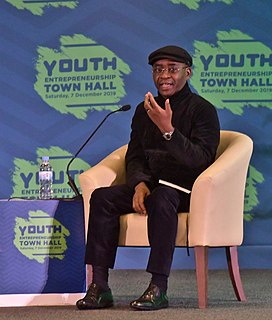A Quote by Marco Rubio
We have a violence problem in America. And no one is having a debate about the violence problem. And I think this is a missed opportunity to have an honest and open conversation in this country about why these horrifying things are happening, not simply what they're using to carry this out, but why are people doing this to begin with?
Related Quotes
If someone can produce the law that keeps guns out of the hands of criminals but protects the right of law-abiding citizens to possess them, and doesn't infringe on those rights, I would consider that. But all the proposals I've seen do not achieve that goal. And we are missing a golden opportunity to have an important debate about violence in the USA. Violence in our society is the problem.
We have a problem with drugs? Let's declare war on drugs! We have a problem with crime? Let's declare war on crime! We have a problem with violence? Let's declare war on violence! The deeply ingrained American attitude that we can solve any problem w/enough force creates, feeds, & rewards the epidemic of violence we are currently experiencing.
Somebody insults you and you feel anger. Don't miss this opportunity; try to understand why, why this anger. And don't make it a philosophical thing. Don't go to the library to consult about anger. Anger is happening to you -- it is an experience, a live experience. Focus your whole attention on it and try to understand why it is happening to you. It is not a philosophical problem. No Freud is to be consulted about it. There is no need! It is just foolish to consult somebody else while anger is happening to you. You can touch it. You can taste it. You will be burned by it.
The debate was wearing me out. Once you've posed that question, it won't go away. I think many people kill themselves simply to stop the debate about whether they will or they won't. Anything I thought or did was immediately drawn into the debate. Made a stupid remark--why not kill myself? Missed the bus--better put an end to it all. Even the good got in there. I liked that movie--maybe I shouldn't kill myself.
The problem facing humanity today is not a political problem; it's not a financial problem; it's not a military problem. It's obviously a spiritual problem. That is, it has to do with what we believe to be true about who we are, where we are, why we are where we are, and what are we doing on the Earth. What is the purpose of life itself? What we need right now are leaders or models, people who will stand up and not only help to write a cultural story, but help to model it in the way that they interact with each other.
There are very important questions around the climate issue that folks really don't get to. And that's one of the reasons why I've talked about having an honest, open, transparent debate about what do we know, what don't we know, so the American people can be informed and they can make decisions on their own with respect to these issues.
Another problem about writing about politics in the "age of globalization" is that so much of the violence in the form of war and also in the forms of institutional violence - sweatshops, child labor, victimization of people economically - happens elsewhere and out of sight. And when we do know about it and need to witness it, it's always mediated by images of one kind or another, so you're kind of stuck trying to write about what it's like trying to be you living your life thinking about and experiencing this stuff in that way.
I'm really interested in violence. And I think there's an inevitably cinematic property that violence brings to the moviegoing experience. But one still has to be thoughtful and mature about how you depict it and how you think it through. You have to think about the effects that violence has on audiences, and it's deployed so casually that I think it's losing its meaning. And when things like violence and murder and the dehumanization of other people lose their meaning, then we're really kind of in a place where we have to reexamine and take a hard look at ourselves.

































